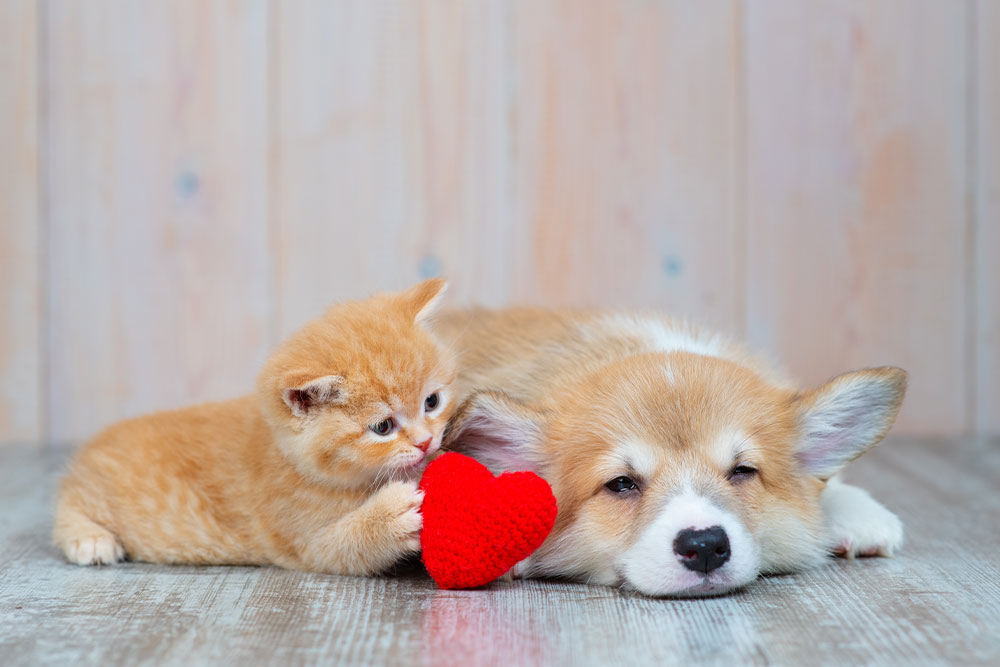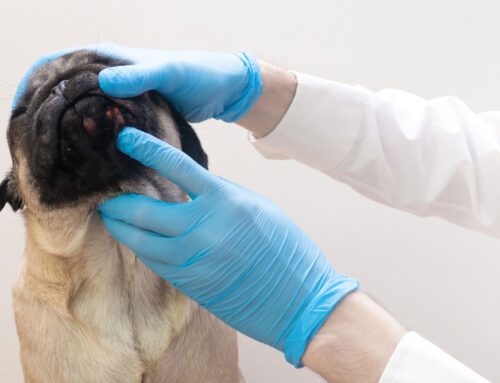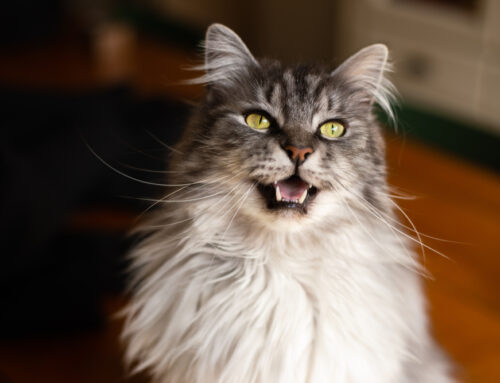Keeping Your Pets Safe During the Holidays
The holiday season is a time of joy and celebration. As we adorn our homes with festive decorations and prepare for gatherings, it’s crucial to remember the safety of our pets. At Palisades Veterinary Hospital, we are dedicated to ensuring your pets enjoy the holidays just as much as you do, safely and healthily.
Common Holiday Hazards for Pets
Food-Related Hazards
The holidays bring an array of tasty treats that, while delicious for humans, pose significant risks to pets. Foods such as chocolate, which contains theobromine, can be toxic to dogs and cats. Xylitol, an artificial sweetener found in many sugar-free candies and baked goods, can cause life-threatening liver failure and hypoglycemia in pets. Even certain types of nuts, such as macadamias, and bones from fish or poultry can be hazardous, leading to intestinal blockages or even choking.
Medical Perspective on Food Hazards
When a pet ingests chocolate, symptoms such as vomiting, diarrhea, elevated heart rate, and tremors may occur. Without prompt treatment, this can progress to seizures and even death. Xylitol ingestion can cause a rapid insulin release, leading to a dangerous drop in blood sugar levels, resulting in weakness, collapse, and seizures. Immediate veterinary intervention is crucial to manage these emergencies effectively.
Decorations
Decorative items like tinsel, lights, candles, and glass ornaments can attract curious pets but can be extremely dangerous. Tinsel, if ingested, can cause serious intestinal blockages requiring surgical intervention. Electrical cords from holiday lights pose a risk of electrocution if chewed on, and candles can be knocked over, leading to burns or fires.
Behavioral Impact of Decoration Hazards
The shiny allure of tinsel and lights can be irresistible to pets, particularly cats. The behavioral drive to play with these items can lead to accidental ingestion or injury. Pet owners can mitigate these risks by using pet-safe decorations and securing electrical cords away from pets’ reach.
Plants
Several holiday plants, such as poinsettias, mistletoe, and holly, are toxic to pets. These plants can cause mild to severe gastrointestinal upset and, in severe cases, cardiovascular problems. For example, mistletoe ingestion can lead to low heart rate and neurological symptoms in severe cases.
Diagnosis and Treatment of Plant Ingestion
Diagnosis typically involves identifying the plant and observing symptoms such as vomiting or lethargy. Treatment may include induced vomiting, administration of activated charcoal, and supportive care such as intravenous fluids. Preventing access to these plants is the best strategy, ensuring they are placed out of reach.
Stress and Anxiety
The hustle and bustle of holiday gatherings and noisy festivities can overwhelm pets, leading to anxiety and stress. This can manifest in various ways, including destructive behavior, withdrawal, or even aggression.

Managing Stress and Anxiety
Creating a safe, quiet space for pets during gatherings can help alleviate stress. Providing familiar toys or blankets and playing calming music can also help. In some cases, anxiety wraps or pheromone diffusers like Feliway or Adaptil can provide additional comfort.
Symptoms to Watch For
- Food Poisoning: Symptoms include vomiting, diarrhea, lethargy, and in severe cases, seizures.
- Injuries from Decorations: Look for cuts, signs of electrocution, or distress.
- Stress or Anxiety: Excessive panting, pacing, or hiding are key indicators.
Preventative Measures to Ensure Pet Safety
- Proper Food Storage: Keep unsafe foods out of reach and ensure garbage bins are secure to prevent your pet from scavenging.
- Safe Decorations: Opt for pet-safe decorations and secure electrical cords away from pets.
- Creating a Safe Space: Provide a quiet, comfortable retreat for your pet to escape the commotion of holiday gatherings.
- Routine Maintenance: Stick to regular feeding and exercise schedules to help keep your pet’s stress levels at bay.
Emergency Procedures and When to Visit Palisades Veterinary Hospital
Knowing how to respond to a pet emergency is crucial. If you suspect your pet has ingested something toxic or is injured, it is important to seek veterinary care immediately. Familiarize yourself with signs of distress that require immediate attention and keep our Emergency Services information handy. In an emergency, minutes matter.
How Palisades Veterinary Hospital Can Help
During the holidays, we offer comprehensive services to keep your pets healthy. Regular exams and preventative care are key to ensuring your pet remains safe during this busy time. Consider scheduling a holiday season check-up, and explore our Preventative Medicine services to learn more about how we can assist.
FAQ and Tips for Pet Owners
- What should I do if my pet ingests chocolate? Quickly remove any remaining chocolate, and contact us Do not induce vomiting unless directed by a professional. If your pet ingests chocolate after hours, you can also call the ASPCA Animal Poison Control Center at (888) 426-4435.
- How can I keep my pet calm during holiday parties? Establish a quiet, separate area for your pet with their favorite items. Consider using calming aids like pheromone diffusers or anxiety wraps.
- Are there pet-safe alternatives to traditional holiday plants? Yes, consider artificial plants or safe alternatives like Christmas cactus, which are non-toxic to pets.
The holidays are a special time for creating memories with your loved ones, including your pets. By taking the right precautions, you can ensure that this festive season is safe and enjoyable for everyone. At Palisades Veterinary Hospital, we are here to be your partner in pet health. Let us help you keep your pets safe so you can focus on the joy of the season.
For additional information on holiday pet safety, you can visit reputable resources like the American Veterinary Medical Association’s Holiday Pet Safety guide and the ASPCA’s Holiday Safety Tips.







Leave A Comment